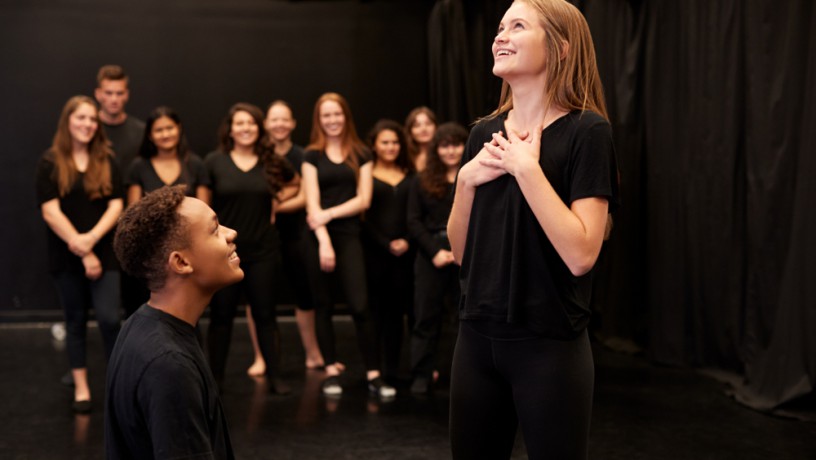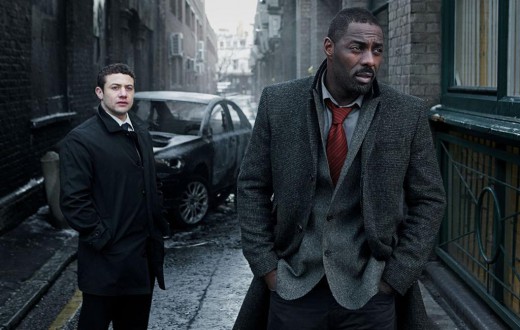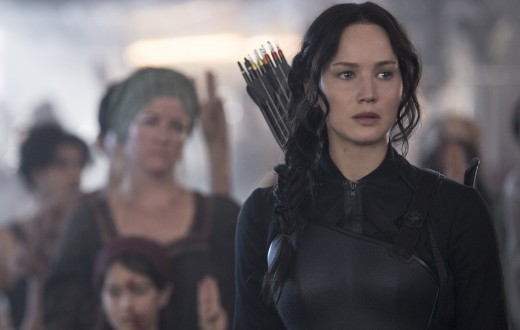As actors, what brings many of us joy in the work is that sense of riding a dragon when you step on stage or in front of the camera. No, that wasn’t a backhanded Game of Thrones reference, (although, did you SEE that third episode of the final season, OMG!!).
Sorry, where were we? Right. But actually, when you think about it, acting is a little like Daenerys Targaryan riding a dragon over a perilous battlefield (sorry, still processing) trying to keep an eye out for ways she can aid her companions while still evading dangers being flung at her from above and below.
In terms of acting, we are tasked with processing an array of inputs – our lines, blocking, character, and direction – all while walking a knife’s-edge of living the truth of the moment as our scene partners do the same. Our reactions to them and their reactions to us create magic, if we’re lucky.
But one vital way we can help ourselves and our companions in the creation of the art we love is to work on our improvisational skills. Not only can you help to create a better final product and an atmosphere of confidence and trust with your scene partners and directors when you’re on a project, you can also help yourself book more roles. Here’s why it’s becoming more and more important to improve your improv abilities if you want to land more acting jobs these days.
1. Improv Is Everywhere (Including the Audition Studio)
If there’s one question my non-actor friends and relatives want to ask about working in this business it’s “How do you remember all those words?” And it’s a fair question, it’s just a bit misguided. While of course learning one’s lines is a fundamental skill every actor needs, what our friends are really addressing is a question of fear: fear of what could potentially go wrong should you forget what you’re supposed to say. What they really want to ask is “Aren’t you scared you might go up?” One key difference that you’ll notice in more experienced actors versus those just starting out is they realize that while learning the words is important, they’re less terrified of forgetting the exact syllable in the script and more comfortable with the idea of riffing if needed. That’s because they’ve learned that more often than not, as long as they’re fully engaged with the character, understand the scene they’re in and the story they’re telling, the exact words they say can often be a bit more fluid. This is especially important to note when it comes to auditioning. Think about what the people behind the table are seeing when you come into the audition studio: they’re seeing yet another person fitting your general age group, your general looks, perhaps your hair color, height, etc. They’re steeling themselves to watch the 100th or 200th person read these same bloody sides yet again and reaching for their tenth coffee of the day to try to stay awake. So seeing an actor with some ability to improvise and shake things up a bit in the audition is often an eye-opener. There are so many directors and even screenwriters who will tell you that the particular unexpected twist some actor put into a line or a scene is what transformed it from a two-dimensional exercise into a fully fleshed-out, genuine moment. If you can show that you’ve got those kind of instincts and skills in an audition, you’re helping the creative team understand that you are not just an actor who takes orders, but a potential partner and valuable contributor to their work. And anyway pretty much every audition or at least every callback you go to these days is going to feature some moment or other where you’ll be asked to improvise. Being prepared for anything can make or break your audition. (But I mean, do learn your lines, especially if you’re reading for Mamet, lol.)
2. Learning Improv Means Learning Confidence
Actors who are more comfortable with improv are generally going to be more confident actors overall. That’s because they’ve learned the mental gymnastics of turning acting “mistakes” into opportunities. You’ll often see younger actors on set or on show nights at the theater looking pale and damp, their sides gripped tightly in their little fists, muttering to themselves as their eyes dart about in near-panic that they are about to be called. Look, yes, we all have our process and yes you MUST learn your lines, without question. But the point here is that with better improv training, that fear of “failure” to remember your lines gets turned into a more relaxed mode of approaching the work. So many golden moments have been created on stage and on film simply due to actors being loose enough and confident enough with themselves to simply go with the flow when something unexpected comes their way. Taking improv classes means being ready for anything.
3. “Yes, And…” Is The Essence Of Acting
If you want a master lesson in how improv skills can improve your work, just watch the blooper reels from The Office. Steve Carell came up in the Chicago improv scene working out of Second City, and his skill and the freedom he grants himself as an actor to take risks have taken him to the top of his craft. Just one tiny example: in the episode where Carell’s character Michael Scott accidentally outs Oscar Martinez (the uncrackable actor Oscar Nuñez), Carell leans in slowly to kiss a very reluctant, very uncomfortable Oscar on the lips, in one of the funniest, most awkward moments of the season, perhaps in the show’s entire run. That moment was improvised by Carell. And while the show’s writers are brilliant and the actors used their words to great effect, watching the outtakes you really get to see how much improvisational energy went into creating the show. You could even say that Carell’s improv skills helped to create the beloved, goofy character. While original show creator Ricky Gervais’ office boss David Brent in the U.K. version is pure comic brilliance in its own right, the character as written was a bit too sharp and acerbic for Carell’s sensibilities as an actor. Michael Scott’s ineptitude and buffoonery came from a place that was more grounded in a genuine sweetness and generally good intentions. Carell’s improvisation in that direction undoubtedly helped fuel the show’s creators to write his character more that way. You can go even further and make the argument that acting in general comes from the same mental place that is the grounding for improv: every time we set out to take on a role and to “behave truthfully under imaginary circumstances,” as Sanford Meisner put it so brilliantly, we are in fact saying “yes, and” to embracing the life and loves and dishonesty and foibles and secrets and prejudices of that character. Improv experience can only help you to do that in a more genuine way.
4. Choices and Thinking Fast
Another vital skill we can learn from working on our improv skills is the importance of making strong choices, and the ability to think on our feet. And the better you are at both of these, the more likely you are to get cast when you’re auditioning. Let’s go back to the example of the casting team wearily sitting through yet another rote read of the same sides they’ve heard a hundred times already. The reason so many actors are reading those lines the same way is because of fear. Think about the conversations you hear in the audition waiting room: 90 percent of the actors you go up against in auditions are terrified. They’re terrified they won’t get cast, that they’re too old, too young, too fat, too thin, too inexperienced – whatever. Fear drives many if not most of them. That fear pushes them into a corner: they read the slapped-together character breakdown and the tiny slice of the script they were given, and they treat it as gospel, never pushing any boundaries or challenging lowest common denominator thinking. However, the actor well-versed in improv understands the importance of making a solid, clear choice, even or especially if it runs counter to what is expected. Making those kinds of choices and doing it in the moment can separate you from the pack in the audition room, and make the CD and director sit up and pay attention.
So get out there and ride a dragon today! Improve your improv and improve your acting – and your chances of getting cast. Keep in mind too that as you improve in your improv class, using self-tapes from them can help show off how much you’ve improved when you self-submit!







